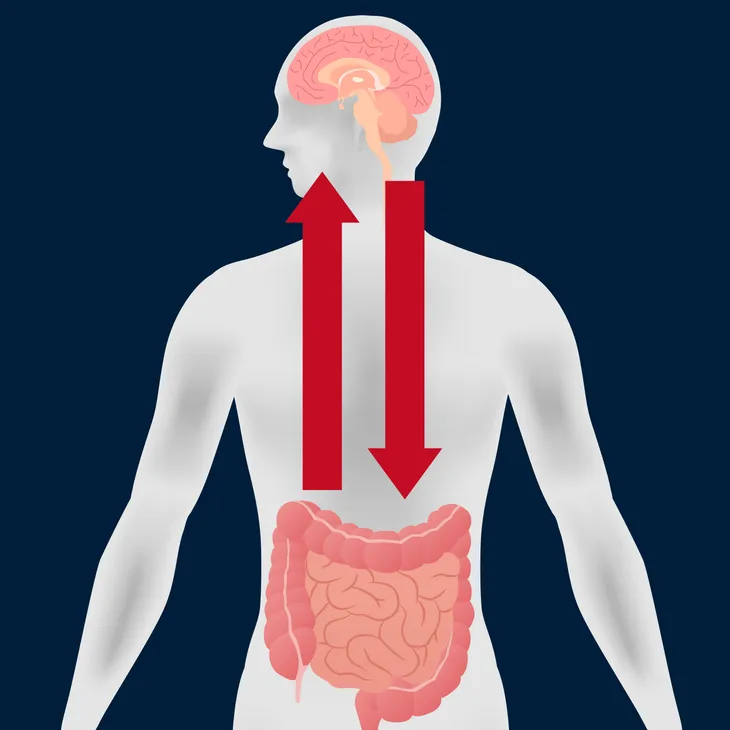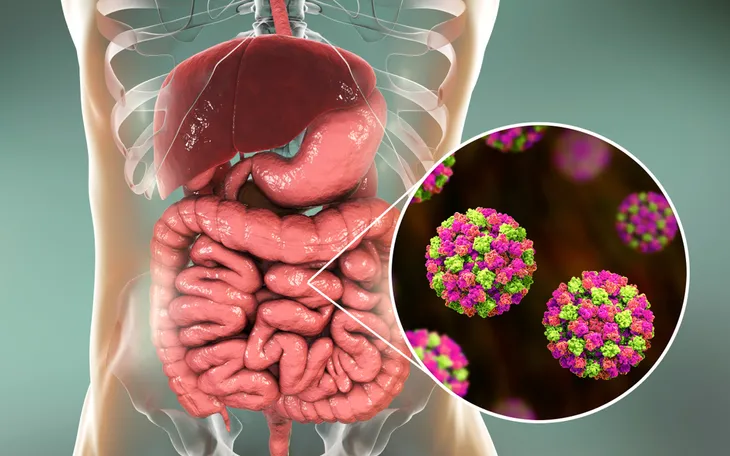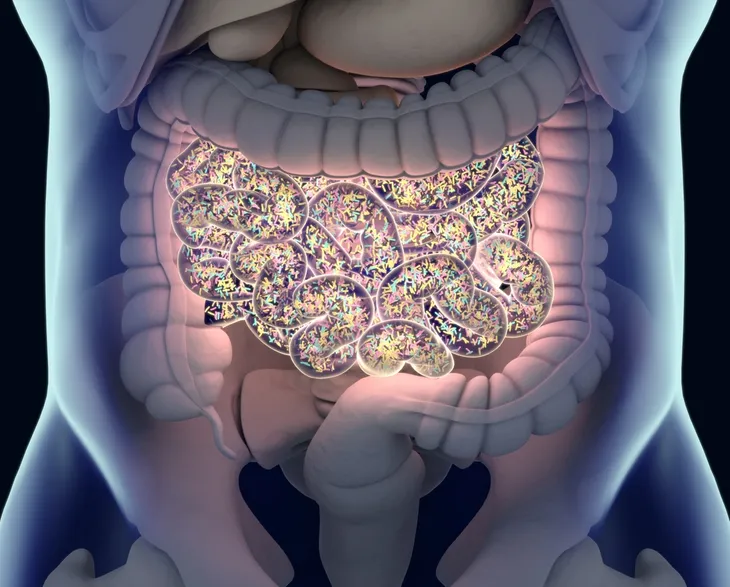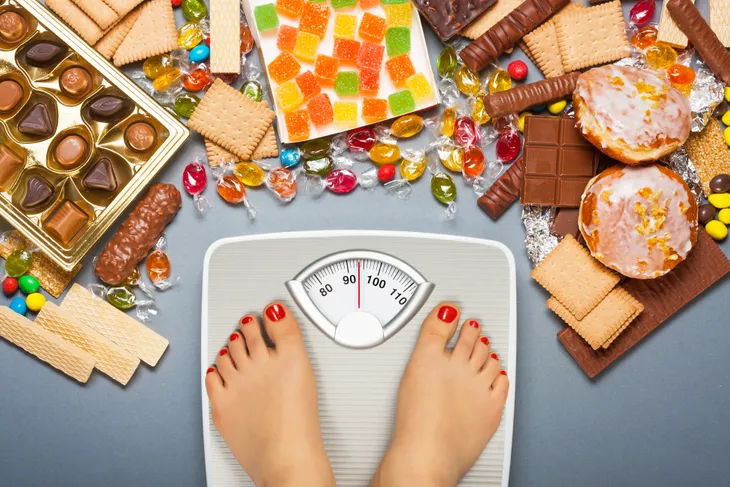Irritable bowel syndrome (IBS) is a fairly common condition that tends to be a lifelong battle. It affects the large intestine and results in uncomfortable symptoms like abdominal pain, bloating, cramping, gas, as well as diarrhea, and constipation (or both). It’s one thing to have a stomach ache after eating something off or having trouble going to the bathroom, but for people with IBS, their symptoms can be debilitating.
While the exact reason why someone develops this condition is largely unknown, we are aware of some causes and triggers that can worsen the symptoms. Let’s take a look at some of the most common triggers and causes of irritable bowel syndrome…
Cause: Muscle Contractions in the Intestine
Ever wondered how the food we eat can move through the body? Maybe not…it’s not exactly common table talk, but we’re going to assume most people have a general understanding. If not, here it goes…There are muscles in the intestines that contract to help move digested food along. While these muscle contractions are necessary to properly digest food, if they aren’t working properly they can cause (or worsen) the symptoms of IBS. For example, “contractions that are stronger and last longer than normal can cause gas, bloating, and diarrhea. Weak intestinal contractions can slow food passage and lead to hard, dry stools,” writes the Mayo Clinic.
Cause: Nervous System
One of the most fascinating things about our gut is how strategically linked it is to our central nervous system, especially the brain. It’s like a well-oiled machine! But when things aren’t working properly, it can cause some pretty nasty side effects. Those who suffer from IBS might have issues with the link between their nervous system and the gut. “Abnormalities in the nerves in your digestive system may cause you to experience greater than normal discomfort when your abdomen stretches from gas or stool,” says Mayo Clinic. ”Poorly coordinated signals between the brain and the intestines can cause your body to overreact to changes that normally occur in the digestive process, resulting in pain, diarrhea or constipation.”
Cause: Inflammation of Intestines
It’s uncomfortable just thinking about it, but people who suffer from IBS probably also suffer from inflammation of their intestines. The Mayo Clinic puts it like this: “Some people with IBS have an increased number of immune-system cells in their intestines. This immune-system response is associated with pain and diarrhea.”
Cause: Infection
According to the Mayo Clinic, someone can develop irritable bowel syndrome after a severe cause of “diarrhea (gastroenteritis) caused by bacteria or a virus.” It can also be caused by bacterial overgrowth which is often seen in the small intestines and referred to as small intestinal bacterial overgrowth (SIBO). This condition can cause similar symptoms to IBS like diarrhea and bloating.
Cause: Change in Bacteria
It’s probably not something we ever really think about, but the bacteria in a person’s gut is actually extremely important and has a huge effect on the digestive system. According to the Mayo Clinic, one potential cause of IBS might be due to microflora. People who suffer from IBS probably have an irregular balance of bacteria in their gut. “Microflora are the ‘good’ bacteria that reside in the intestines and play a key role in health. Research indicates that microflora in people with IBS might differ from microflora in healthy people,” says Mayo Clinic.
Common Risk Factors
Now that we’ve talked about all the potential causes behind irritable bowel syndrome, we’d also like to include some of the potential risk factors. There aren’t many, but the Mayo Clinic lists a few traits that could increase a person’s likelihood of developing IBS. For starters, it’s more common in young people or people under the age of 50. It’s also twice as likely to occur in women than it is in men. “Estrogen therapy before or after menopause also is a risk factor for IBS,” writes the Mayo Clinic.
You should also be wary of whether there’s a family history of IBS because genes and a family environment could play a potential role. Lastly, mental health such as anxiety and depression are sometimes associated with IBS. The Mayo Clinic says “a history of sexual, physical or emotional abuse also might be a risk factor.”
Trigger: Diet for Constipation/Diarrhea
Although it seems odd a condition could cause both diarrhea and constipation, these two symptoms are a common occurrence for people with irritable bowel syndrome and can even be experienced in alternating bouts at the same time! Similar to any other person, diarrhea for IBS sufferers is often caused by diet. WebMD lists a number of foods that should be avoided because they can make diarrhea worse. The list consists of fatty or fried foods, coffee, carbonated drinks, too much fiber, dairy products, and even eating large-sized meal portions.
IBS-related constipation is also caused by diet and can be made worse by a similar list of foods, including: “breads and cereals with refined grains, processed foods such as chips and cookies, coffee, carbonated drinks, and alcohol,” writes WebMD. As well as a high-protein diet and many dairy products, especially cheese.
Trigger: Lack of Exercise
A lack of exercise or a sedentary lifestyle can have major effects on a person’s health, especially if that person also suffers from irritable bowel syndrome. The average person should be exercising at least three times a week says Neilanjan Nandi, M.D., gastroenterologist and assistant professor at Drexel College of Medicine in Philadelphia during a discussion with Women’s Health. Aim for a workout (walking, cycling, yoga, etc) that is anywhere from 20 to 60 minutes long.
Regular exercise will not only relieve stress and anxiety, but a recent study, done by the University of Illinois also found that it can increase the good bacteria in our gut and improve our digestive system. For example, it promotes regular contractions in the intestines which helps move things along. This is especially important for those with constipation, and on the other hand, it will slow things down for those suffering from diarrhea.
Trigger: Stress and Anxiety
Anyone who suffers from irritable bowel syndrome has probably already noticed that their symptoms are worse during stressful or anxiety-provoking situations. “Stress is a major trigger for IBS because many of us hold tension in our guts,” says Carolyn Dean, M.D., author of IBS For Dummies to Women’s Health. “That tension causes muscle cramping and can easily escalate into an episode of IBS.”
The best way to avoid this trigger is to find healthy ways to cope with stress and anxiety. This might mean opening up to someone like a therapist, or even close friends or family. WebMD also advises eating healthier and getting the proper amount of sleep and exercise. Make use of your downtime by taking part in activities that are relaxing and enjoyable, for example going for a walk, listening to music, reading, or even shopping! It can be anything that you will find enjoyable and will work towards reducing stress.
Trigger: Drugs
According to WebMD, certain drugs can trigger irritable bowel syndromes like diarrhea or constipation. Drugs that should be avoided are antibiotics, some antidepressants, and any medicine made with sorbitol, like cough syrup.
The best way to limit the effect of this trigger is to discuss it with your doctor and get their advice on what drugs would work best with IBS to avoid any flare-ups. When it comes to antidepressants, WebMD advises choosing carefully and wisely. “Older ones, called tricyclic antidepressants, can cause constipation. Standard ones, called selective serotonin reuptake inhibitors, like fluoxetine and sertraline, can cause diarrhea,” writes the source. As always, consult with your doctor before starting a new medication or ending an already existing one.
Trigger: Menstruation
Not only are women more likely to suffer from IBS, but they can also experience worse symptoms during their menstruation which is largely due to the two main hormones, estrogen and progesterone. Women’s Health notes that both of these hormones have the ability to slow down the gastrointestinal tract. “A slower transit time means constipation and bloating, especially if you don’t take in enough fiber and liquids,” says Carolyn Dean, M.D., author of IBS For Dummies when talking to Women’s Health.
WebMD says there’s isn’t a lot that can be done to prevent it, the best thing to do is to ease the pain and discomfort with tactics like a warm compress, pain relievers, or for some people, birth control pills will help ease their PMS symptoms which in return helps with IBS.
Trigger: Lack of Sleep
Not surprisingly, a lack of sleep consistently can have a huge effect on your health, and will only make the symptoms of irritable bowel syndrome worse. Women’s Health cites a 2014 study in the Journal of Clinical Sleep Medicine which found that women who suffer from IBS and don’t sleep well at night will likely experience worse symptoms the following day. “Any disruptions to your circadian rhythm affect the microbiome (organisms) of the gut,“ says Samantha Nazareth, M.D., a board-certified gastroenterologist in New York City to Women’s Health.
The best way around this trigger is to get into a better sleeping routine. Women’s Health magazine advises going to bed at a reasonable time and doing it consistently. You should also wake up around the same time each day and avoid hanging out in the bedroom or bed for anything other than sleep or sex. This will not only improve your symptoms but also decrease stress and anxiety which as we’ve previously discussed, can also affect IBS.















